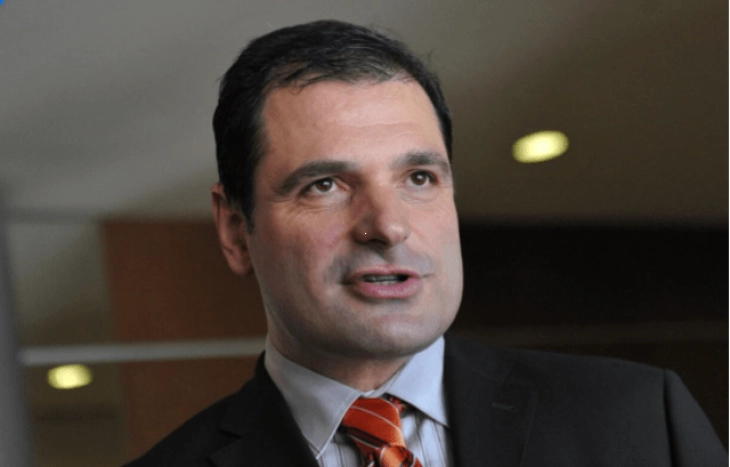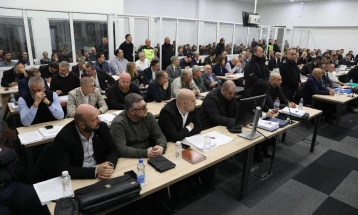Ivo Indzhov: Bulgaria could soften its position towards North Macedonia

Sofia, 5 January 2022 (MIA) - Under certain circumstances, Bulgaria can soften its position towards North Macedonia and during the year will probably agree on the start of the country's EU accession negotiations, Ivo Indzhov, a professor at the University of Veliko Tarnovo said in a traditional political survey conducted by the Sofia-based daily Dnevnik on the start of 2022.
He does not believe that the Bulgarian government will fall due to any foreign policy challenge, like NATO-Russia relations or the Republic of North Macedonia’s EU accession negotiations, MIA’s Sofia correspondent reported.
According to Indzhov, on the issue of North Macedonia, one can speculate on deepening the divisions between parties We Continue the Change (PP) and Democratic Bulgaria (DB), which have a more pragmatic approach, on the one hand, and There Are Such People (ITN), but also the Bulgarian Socialist Party (BSP), on the other hand, advocating the ideas of romantic nationalism.
Indzhov, who is an expert on political communication, believes that it is possible for Bulgaria under certain circumstances to soften its position towards Macedonia, emphasizing that at the level of political rhetoric, the Bulgarian position has already evolved.
"For Brussels and Washington, the main Bulgarian demand is incomprehensible, in general - Macedonia to recognize the historical truth of our common history, our common language until 1944 - and that cannot be taken as a serious argument for EU membership," Indzhov said.
According to him, this "essential element of the Bulgarian position has not been dropped from the negotiating package,” but Sofia is now focusing on issues that have a "measurable" solution.
“Those include respecting the rights of the citizens with Bulgarian national feeling in the Republic of North Macedonia, their inclusion in the country’s Constitution, rehabilitation of the victims of communism. North Macedonia's policy in these areas has serious shortages and the issue of human rights is universal and the EU cannot ignore it,” the university professor noted.
According to him, it will be harder for Bulgaria to force Macedonia to eliminate "hate speech" from textbooks, media and monuments.
“Bulgaria was a "liberator" for a significant portion of the local population during World War II and was not formally a "fascist occupier". However, under international law, it is still just an occupier, Indzhov said, adding that at that point in time, Bulgaria was "an authoritarian state with fascist tendencies in society and an ally of Nazi Germany and fascist Italy."
Concerning Bulgarian Prime Minister Kiril Petkov's plans to put the economy as a priority in relations between Sofia and Skopje, Indzhov said such an approach could contribute to improving the bilateral climate.
“Despite the serious domestic political risks of such a political move, under conditions of growing international pressure and some Macedonian compromises, in 2022 Bulgaria is likely to allow Macedonia - its historically closest country in the Balkans - to start EU accession negotiations,” Indzhov said.







